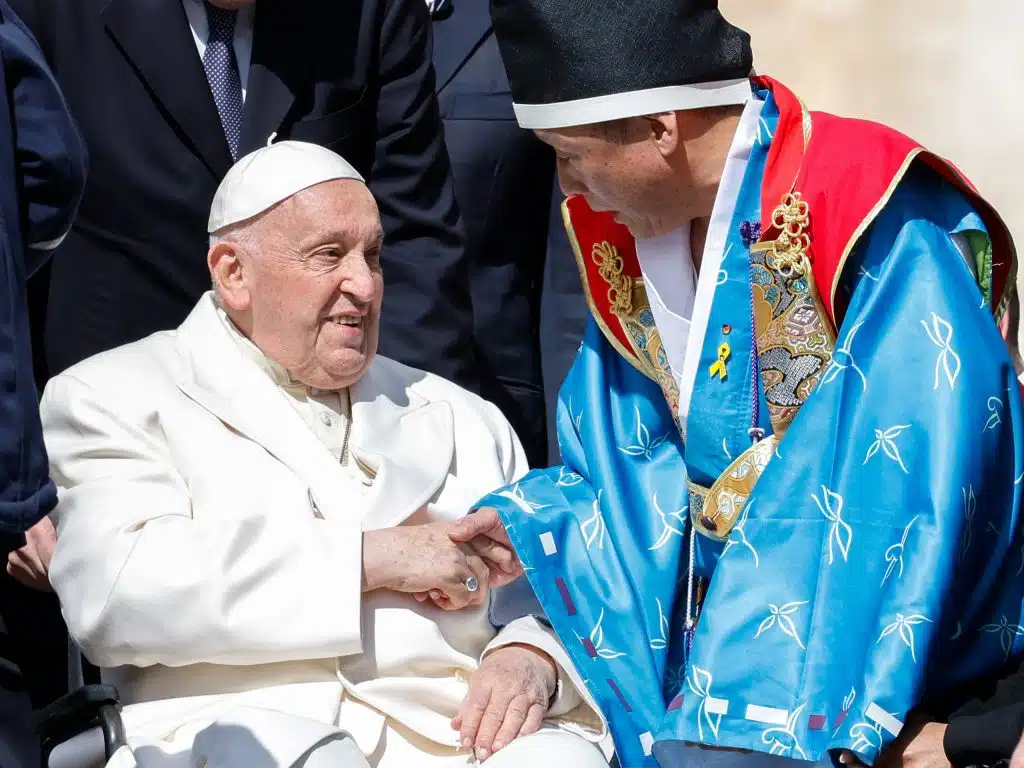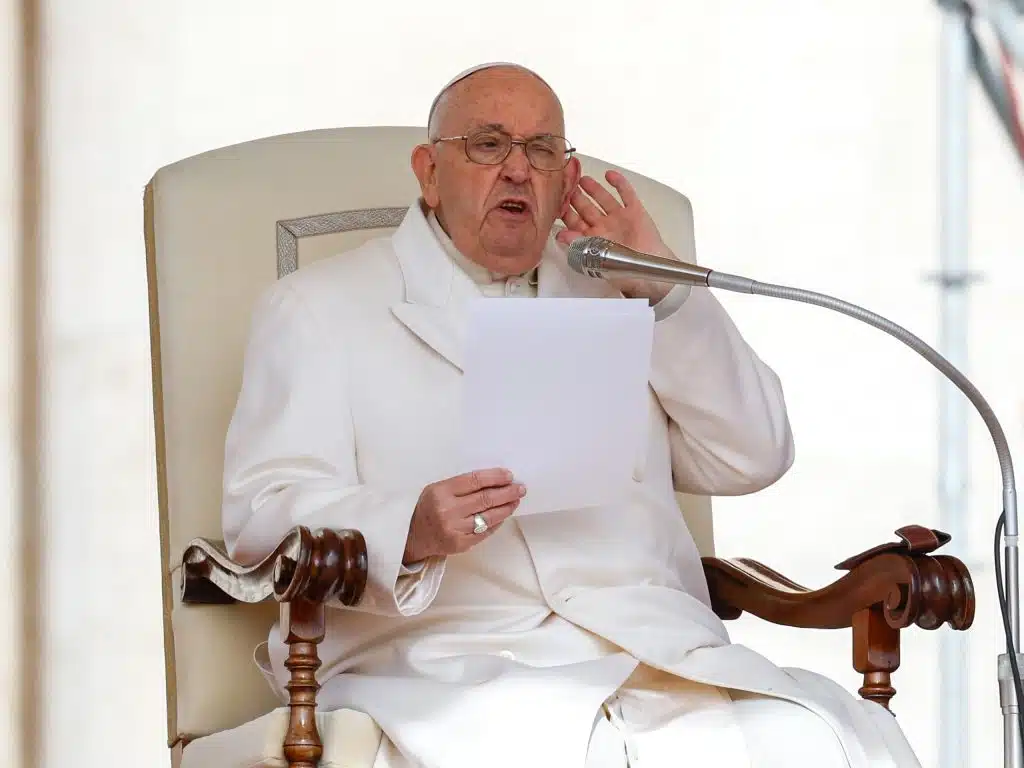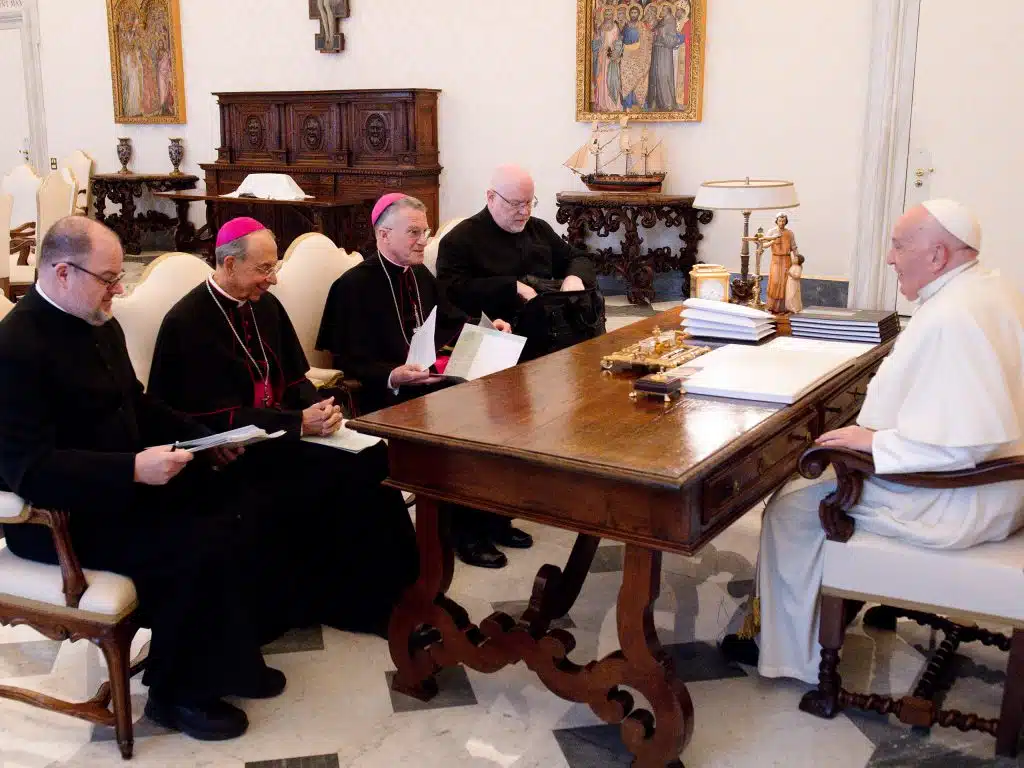VATICAN CITY — Pope Francis has approved a fourth pathway to possible sainthood — giving one’s life in a heroic act of loving service to others.
In a new apostolic letter, the pope approved new norms allowing for candidates to be considered for sainthood because of the heroic way they freely risked their lives and died prematurely because of “an extreme act of charity.”
The document, given “motu proprio” (on his own initiative) went into effect the same day of its publication July 11, with the title “Maiorem hac dilectionem,” which comes from the Gospel according to St. John (15:13): “No one has greater love than this, to lay down one’s life for one’s friends.”
Archbishop Marcello Bartolucci, secretary of the Vatican Congregation for Saints’ Causes, said the addition is meant “to promote heroic Christian testimony, (that has been) up to now without a specific process, precisely because it did not completely fit within the case of martyrdom or heroic virtues.”
For centuries, consideration for the sainthood process required that a Servant of God heroically lived a life of Christian virtues or had been martyred for the faith. The third, less common way, is called an equivalent or equipollent canonization: when there is evidence of strong devotion among the faithful to a holy man or woman, the pope can waive a lengthy formal canonical investigation and can authorize their veneration as saints.
While these three roads to sainthood remain unchanged, they were not adequate “for interpreting all possible cases” of holiness, the archbishop wrote in the Vatican newspaper, L’Osservatore Romano, July 11.
According to the apostolic letter, any causes for beatification according to the new pathway of “offering of life” would have to meet the following criteria:
— Free and willing offer of one’s life and a heroic acceptance, out of love, of a certain and early death; the heroic act of charity and the premature death are connected.
— Evidence of having lived out the Christian virtues — at least in an ordinary, and not necessarily heroic, way — before having offered one’s life to others and until one’s death.
— Evidence of a reputation for holiness, at least after death.
— A miracle attributed to the candidate’s intercession is needed for beatification.
Archbishop Bartolucci wrote that the new norms arise from the sainthood congregation wanting to look into the question of whether men and women who, “inspired by Christ’s example, freely and willingly offered and sacrificed their life” for others “in a supreme act of charity, which was the direct cause of death,” were worthy of beatification. For example, throughout history there have been Christians who willingly put themselves at risk and died of infection or disease because of aiding and serving others, he wrote.
Pope Francis approved the congregation carrying out an in-depth study of the new proposal in early 2014, the archbishop wrote. After extensive input, discussion and the work of experts, the cardinal and bishop members of the Congregation for Saints’ Causes approved in 2016 “a new pathway for beatification of those who offered their lives with explicit and recognized Christian” reasons.
Archbishop Bartolucci wrote that the new provisions do nothing to alter church doctrine concerning Christian holiness leading to sainthood and the traditional procedure for beatification.
Rather, the addition offers an enrichment, he wrote, with “new horizons and opportunities for the edification of the people of God, who, in their saints, see the face of Christ, the presence of God in history and the exemplary implementation of the Gospel.”



